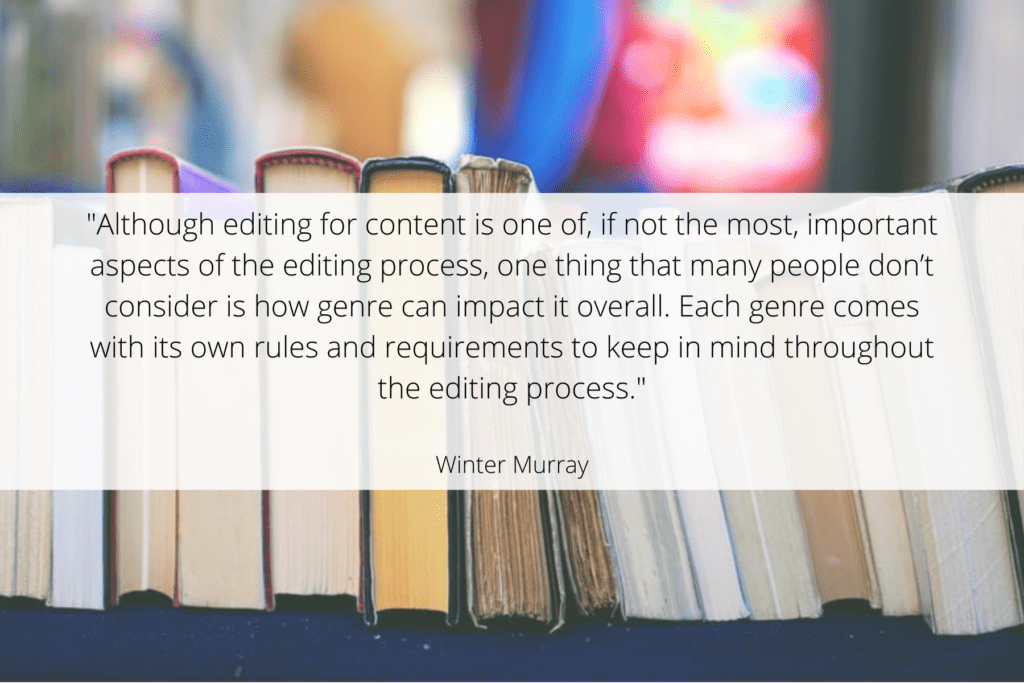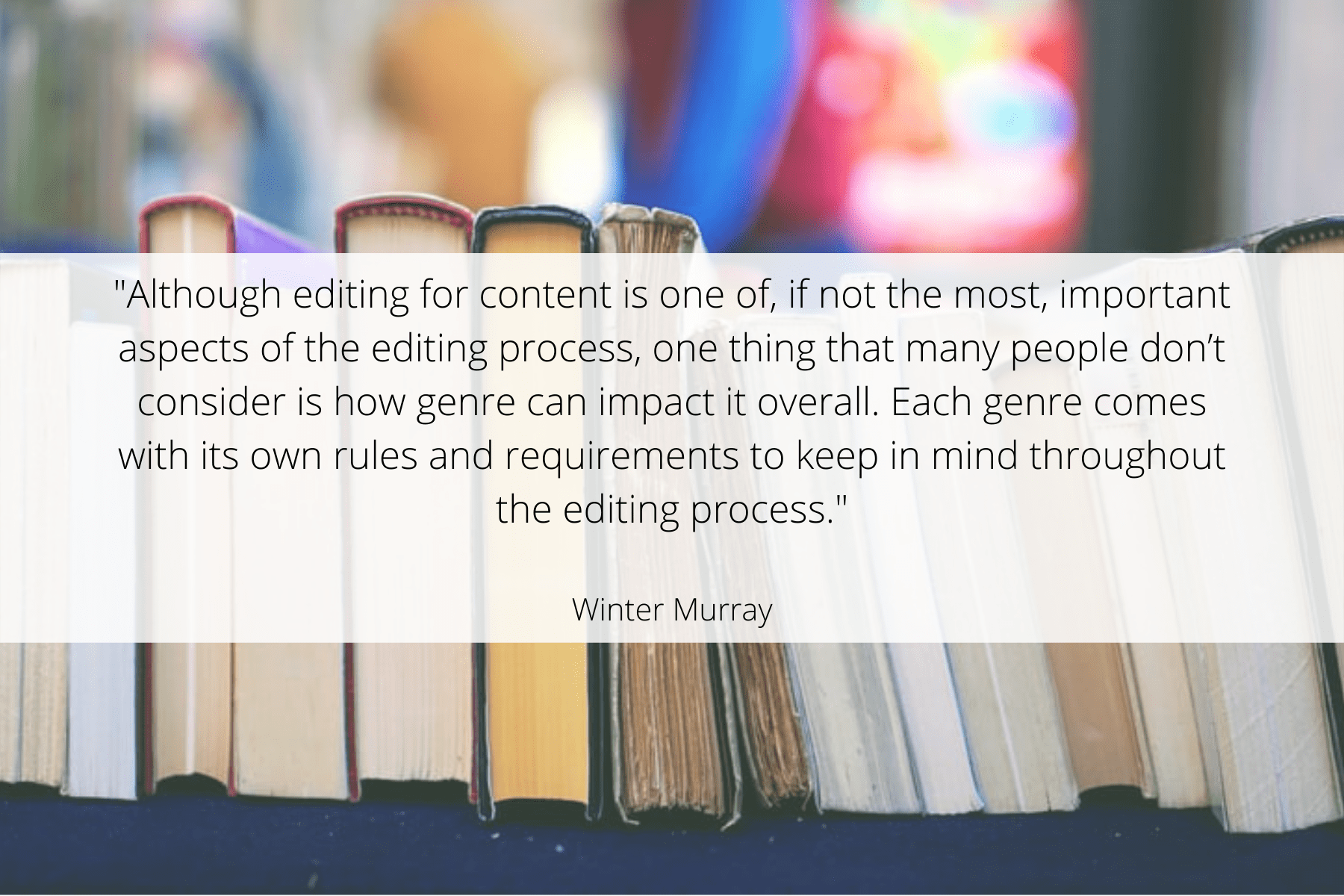by Winter Murray
Although editing for content is one of, if not the most, important aspects of the editing process, one thing that many people don’t consider is how genre can impact it overall. Each genre comes with its own rules and requirements to keep in mind throughout the editing process. Let’s take a look at how some genres may impact how you edit your work!
Children’s Books
When editing children’s books, you have to take into account variables like the age range of your audience, tone, language, and illustrations. You should try to make sure that all of these factors are geared toward your target audience, and that your text lends itself to illustrations that will add to the story in a meaningful way. However, the biggest thing to keep in mind when editing children’s books is that they are most often read aloud.
Reading aloud impacts specific attributes of children’s books, including: rhyme, rhythm, tone, and cadence. (It’s almost like writing a song!) If your book doesn’t have a rhyme scheme, then the editing process will be much simpler, though cadence and tone still need to be considered. If you do have a rhyme scheme, however, you have to account for tone, cadence, and rhythm. Additionally, page breaks need to be planned for and should support (not interrupt) the flow!
Whether or not your book rhymes, try reading it aloud while you edit, or invite trusted friends and family to do so as well. By doing this, you can determine whether your text flows naturally, and where you may need to do some editing.

Self-Help Books
The biggest thing about self-help books is that they are generally predicated on a main idea. This main idea is the foundation of all the advice given throughout the book, so it’s important that this idea is communicated clearly. Ensure that the main idea is established using clear, uncomplicated language, and that all of the subsequent advice, teachings, or suggestions that follow are related back to the main idea.
The other thing to keep in mind is that self-help books—especially spiritual self-help books—often use a surprising amount of language and terminology that is specific to the genre. Keep in mind that while the author is familiar with this terminology, the audience might not be. The solution? Try to edit for the naive audience; in other words, assume that the reader isn’t familiar with the genre at all. For example, when you introduce new terms or phrases, include a brief definition for clarity.
Since we often don’t know our own blind spots, it can be helpful to ask someone to be another set of eyes in looking over the manuscript for any terms that may need defining.
Cookbooks
Cookbooks are one of the trickier genres to edit because they require a lot of attention to detail. Editing cookbooks requires a lot of double-checking. It’s incredibly important to make sure that all recipe titles match the title listed in the table of contents, that ingredients are typed out consistently from recipe to recipe, that all the ingredients listed in the ingredients section appear in the directions (and in the same order in which they appear in the ingredients section!), and that the ingredient amounts are correct in the subsequent directions.
Finally, it’s important that all of the directions are easy to follow. To accomplish this, it can be helpful to ask someone to read over your directions, and actually make the recipe. Another tip is to create a spreadsheet of standard usage. For example, whether “teaspoon” or “tsp” is used. This will help make the editing process easier, for any cookbook.
Poetry
Poetry, unlike most other genres, is as much about the visual as it is about the words. Editing poetry can be tricky, as it often comes from the poet in its final form. Many grammar rules may not apply, as poet’s are often deliberate about their usage—or non-usage—of punctuation.
Editing poetry becomes more about understanding how it will appear on the page and honoring the poet’s intention and wishes, and then planning accordingly. Of course, spelling edits will always be included, but sometimes a purposeful misspelling by the poet can raise questions, therefore it’s always best to ask before changing something.
Editing each genre comes with its own rules, so you may begin to feel overwhelmed by the editing process. In those situations, don’t stress! You can often get the distance you need by taking a break or having a second set of eyes read over your work. Good luck!


